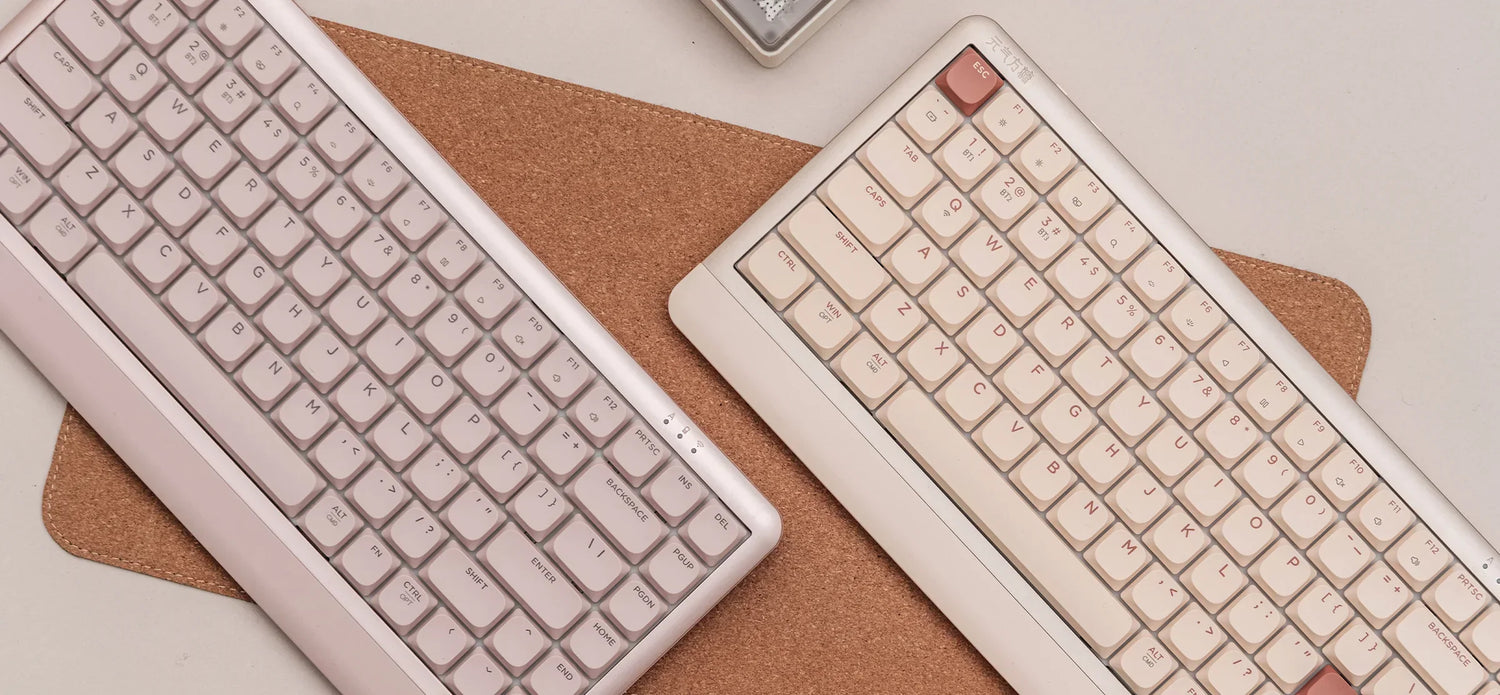
From high-refresh-rate monitors to ultra-sensitive mice, every component of a gamer’s setup is carefully chosen to enhance performance. One of the most hotly debated peripherals is the keyboard—specifically, whether mechanical keyboards are better for gaming than their membrane counterparts.
While mechanical keyboards are often marketed as "must-haves" for gamers due to their tactile feedback, customizable switches, and flashy RGB lighting, what does actual research say about their effectiveness? Are they just hype, or do they really give players a competitive edge?
One of the biggest advantages of mechanical keyboards is their ergonomic benefit. A study using surface electromyography (EMG) compared muscle activity in users typing on both mechanical and membrane keyboards. The results? Mechanical keyboards led to significantly less forearm muscle effort (Pham & Kelling, 2015).
This reduction in effort is crucial during long gaming sessions where hand fatigue can affect reaction time and precision. For gamers who spend hours grinding through raids or competitive matches, reducing muscle fatigue isn't just about comfort—it's about maintaining peak performance.
Mechanical keyboards come with a variety of switch types—linear, tactile, and clicky—all with different actuation forces and travel distances. A comprehensive study tested five mechanical switches with varying force-displacement characteristics and found major performance differences between them.
Key switches with shorter tactile travel (around 1.2 mm) and lower actuation force (35–40g) were associated with better typing and gaming performance, reduced fatigue, and higher user satisfaction. In contrast, linear switches with no tactile feedback actually resulted in slower typing speeds and higher muscle activity (Miller et al., 2018). The right mechanical switch can make a big difference in how fast and comfortably you play.
Beyond the hard numbers, the feel of a mechanical keyboard plays a huge role in the gaming experience. A 2024 study compared various mechanical switches and found that tactile switches (e.g., blue or brown) outperformed linear ones (e.g., red) in both typing speed and accuracy. Users also reported a more “refreshing” and pleasurable experience, especially when backlighting was enabled (Li et al., 2024).
While RGB lighting may seem like just a cosmetic perk, this research suggests it enhances focus and engagement, potentially giving gamers an edge in high-stakes environments.
A large-scale survey of over 500 gamers across Asia, Europe, and the Middle East showed that over 90% believe gaming peripherals improve their in-game performance, with mechanical keyboards topping the list. Additionally, about 70% felt peripherals boosted immersion and enjoyment, underlining that the perceived benefits are as important as the measurable ones (Randhawa et al., 2024).
This indicates a clear trend: gamers not only prefer mechanical keyboards but also believe they perform better when using them.
Another area where mechanical keyboards shine is customizability. From switch types and actuation force to keycap shape and layout, users can tweak every part of a mechanical keyboard to suit their gaming style.
Studies found that elements like pre-travel distance, reset travel, and bottom-out force significantly influenced both performance and satisfaction. In particular, optimizing these specs to match user preferences led to measurable improvements in speed, accuracy, and comfort (Li et al., 2024).
Gamers who care about fine-tuning their gear will find mechanical keyboards provide the flexibility needed for elite-level optimization.
It’s worth noting that mechanical keyboards don't always outperform other input devices in every gaming context. For example, in a racing game study, players performed equally well using a joystick and a keyboard, suggesting that input choice matters more by genre than by absolute performance (Astrup et al., 2019).
This reinforces the idea that mechanical keyboards are best suited for precision-based games like FPS, MOBA, or RTS—where fast key actuation and accuracy are critical.
Yes—but only if you pick the right switch type for your playstyle. Mechanical keyboards offer significant ergonomic benefits, faster and more accurate key actuation (when configured properly), and a more engaging user experience. They don’t just feel good—they help you play better, longer, and with less strain.
Whether you're a casual gamer or an aspiring esports champion, upgrading to a mechanical keyboard at Dareu could be the missing piece in your setup. Just make sure to test different switches and layouts to find your perfect match. Looking to level up your gaming gear? Start with the right keyboard—your hands (and your K/D ratio) will thank you.
References:
Ihr Warenkorb ist leer